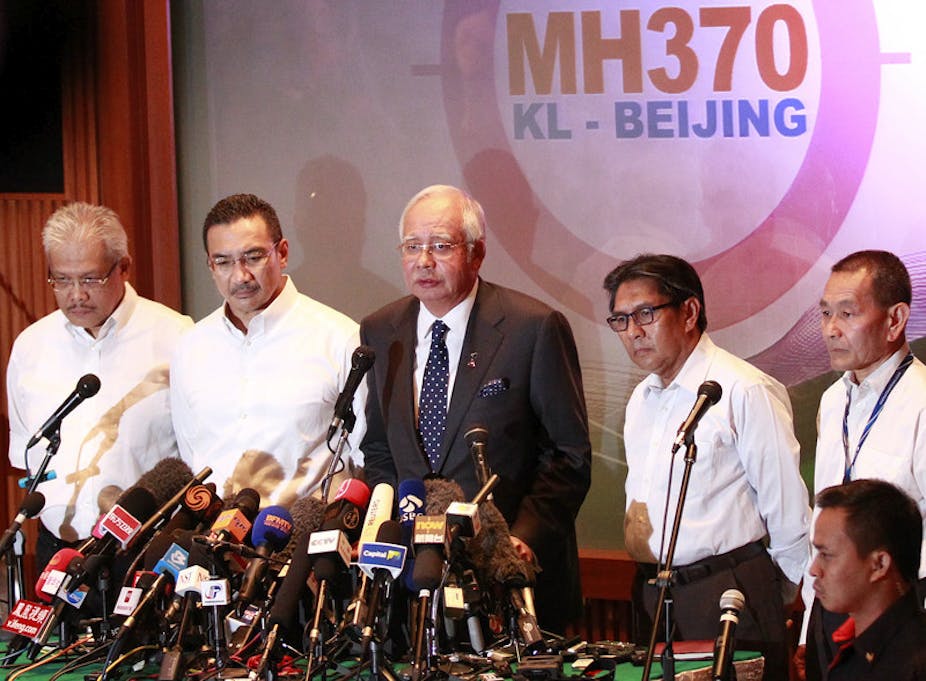Malaysia has consistently been one of the fastest-growing economies in south-east Asia. Among Asian countries, its level of global economic integration has been surpassed only by Singapore and Hong Kong. The country’s economic performance has combined features present in other capitalist developmental states, albeit with a strong presence of crony capitalism. On the whole, Malaysia appears to be making serious headway in its transition to a high-income developed economy.
But over the last few weeks, as the world has been gripped by the fate of flight MH370, Malaysia has been the spotlight. Its performance has been far from stellar. One can only sympathise with the difficulties of managing and operating an emergency response of this scale – but nevertheless, the Malaysian authorities’ handling of the crisis has been a textbook example of how not to manage an emergency situation.
Since the disappearance of MH370, the Malaysian authorities have, at all levels, failed to provide timely and consistent information about new developments regarding this tragedy. Irregular press conferences gave the appearance that information was being withheld from the public, and more importantly from the victims’ families. The apparent secretiveness of the authorities’ approach has been accompanied by multiple leaks of (mis)information, adding to the general confusion and providing ample fodder for conspiracy theorists.
The authorities’ lethargy has undoubtedly contributed to the anguish of the passengers’ relatives. In managing the uncertain, Malaysian authorities have demonstrated an appalling lack of awareness about basic norms of crisis management. From a technical point of view, dealing with a crisis of this magnitude requires a minimal of coordination. Any decent hospital in Malaysia would have had ample experience in dealing with emergencies, and would have been able to do a better job than the government in providing the relatives with counselling and support.
In these circumstances, the relatives should have been gathered together and the Malaysian government should have made it its top priority to make sure that reliable points of information were available to them. Instead, they were not provided with the most basic necessities until it was far too late. Worst of all, it is indefensible that the government’s conclusion that the airplane had been “lost” in the Indian Ocean was relayed to some relatives by SMS.
Slow and timid
As efforts to search for the plane’s debris got underway, Malaysia was quickly sidelined by Australia. One may question the motives and actions of the Australian government, but it is clear that it has been the key source of decisive action to find the missing debris. The Malaysian authorities should be condemned by their timidity in garnering international support behind the airplane wreckage search.
The Malaysian authorities’ incompetence over the MH370 crisis is not the result of a lack of capacity on the part of bureaucrats in that country. It is a direct result of a cowed, pressurised media and a resulting culture that foster a lack of accountability by Malaysian bureaucrats and politicians.
Although Malaysia has come a long way on the economic front, its democratic institutions have not yet been consolidated. Since its independence, Malaysia’s political institutions have been sapped by patronage politics, particularly those practiced by its largest political party, the UMNO. One can only hope that the MH370 fiasco calls attention to the Malaysian government’s failings, and fosters a viable democratic alternative to the UMNO-dominated Barisan Nasional coalition.

